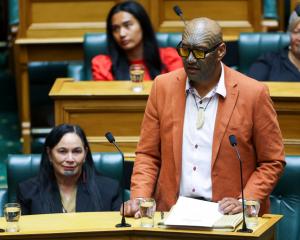New Zealand's involvement in the Vietnam War from 1964 to 1972 had a cathartic impact on political thought and ultimately came to profoundly influence post-Cold War foreign policy.
Only long after the war, which ended in victory to the North Vietnamese communists in 1975, did the full extent of the New Zealand government's secret resistance to participation become known.
For nearly seven years, the National government of Keith Holyoake defied pressure from the United States and Australia to increase its combat contribution to the anti-communist alliance, yet there was a distinct difference between what he and his colleagues said in public at the time, and what was taking place privately.
New Zealand's war effort began in 1964, initially with non-combat military assistance, and was an obligation under both the Anzus and Seato treaties to which this country was a signatory.
Combat troops with air force support, all professionals and volunteers, were sent, but at no stage was New Zealand's fighting contribution greater than about 500.
Towards the end of the 1960s and into the 1970s public protest in New Zealand grew, sparked in part by American domestic anti-war protests, partly from nightly television reports of combat and its aftermath, partly from anti-Americanism inspired by communist propaganda, and partly from the liberal politicisation of youth.
The Labour Party, at first a cautious supporter of the official policy, eventually capitalised on the anti-war protest movement and by 1969, its leader, Norman Kirk, promised to withdraw the troops if elected.
National narrowly won that year's general election but also began a process of disengagement; all the troops were home by late 1971.
On winning the 1972 election, Mr Kirk completed the process, returning the remaining headquarters staff and training teams.
Since then, divergent opinions about our foreign policy and national security have solidified and ultimately led to the anti-nuclear legislation, and the repudiation of Anzus and the post-World War 2 alliance with the United States.
In one sense then, the Clark Government's official apology yesterday to New Zealand's Vietnam War veterans and their families confirms the anti-war view as the "correct" view.
It must give several senior Labour Party leaders - Helen Clark and Minister of Defence Phil Goff among them - considerable satisfaction that they were among the marchers against the war and can today, nearly 40 years on, do something about recompense from a position of power.
The form of the apology is itself a reflection of those times: when the combat troops returned from their duties there were no official public welcomes, no ceremonial speeches of gratitude.
The details of the apology also include the memorandum of understanding between the Government, the Ex-Vietnam Services Association and the Royal New Zealand Returned and Services Association, made in 2006, which incorporates a $30 million fund for veterans who were exposed to the defoliant Agent Orange, ex-gratia payments of $40,000 for veterans with prescribed medical conditions, and $25,000 to the spouses of veterans who have died.
While the memorandum may be considered by most people to be a just response to the unforeseen consequences on individuals' physical and psychological health, and their neglect by successive administrations, the formal apology occupies rather a different category, indeed, has its somewhat ironic aspects.
The Clark Government likes to claim that Labour "brought the troops home", although this is patently not the full story, and official statements emphasise the apology is being given in recognition "that Vietnam veterans were not treated fairly on their return to New Zealand after the war".
It is not being given for sending troops to Vietnam in the first place, nor to the people of Vietnam who suffered so much, although the protest movement (which held more than 300 demonstrations) regarded the war as unjust and illegal.
Nor were individuals shy to express their abuse to the military wherever parades were held at the time.
For some veterans, brought back from Vietnam on civilian aircraft in civilian clothes and told not to disclose to anyone they had been in the war, such was the intensity of public feeling they could not find fellowship even at their local RSA.
Troops were spat on in public and subject to much invective.
In later years, it was as if a shroud had been drawn over New Zealand's involvement in the world's first televised war.
That the shroud has been lifted by this week's events is no bad thing.












